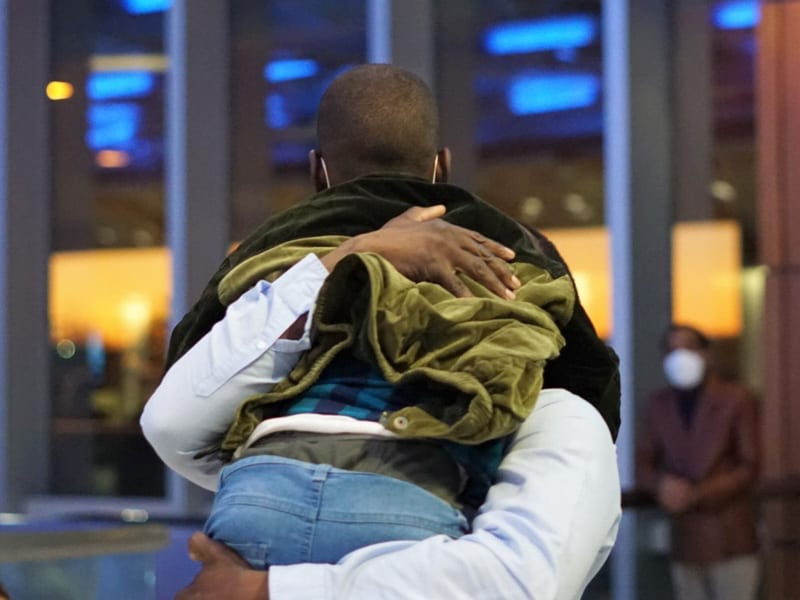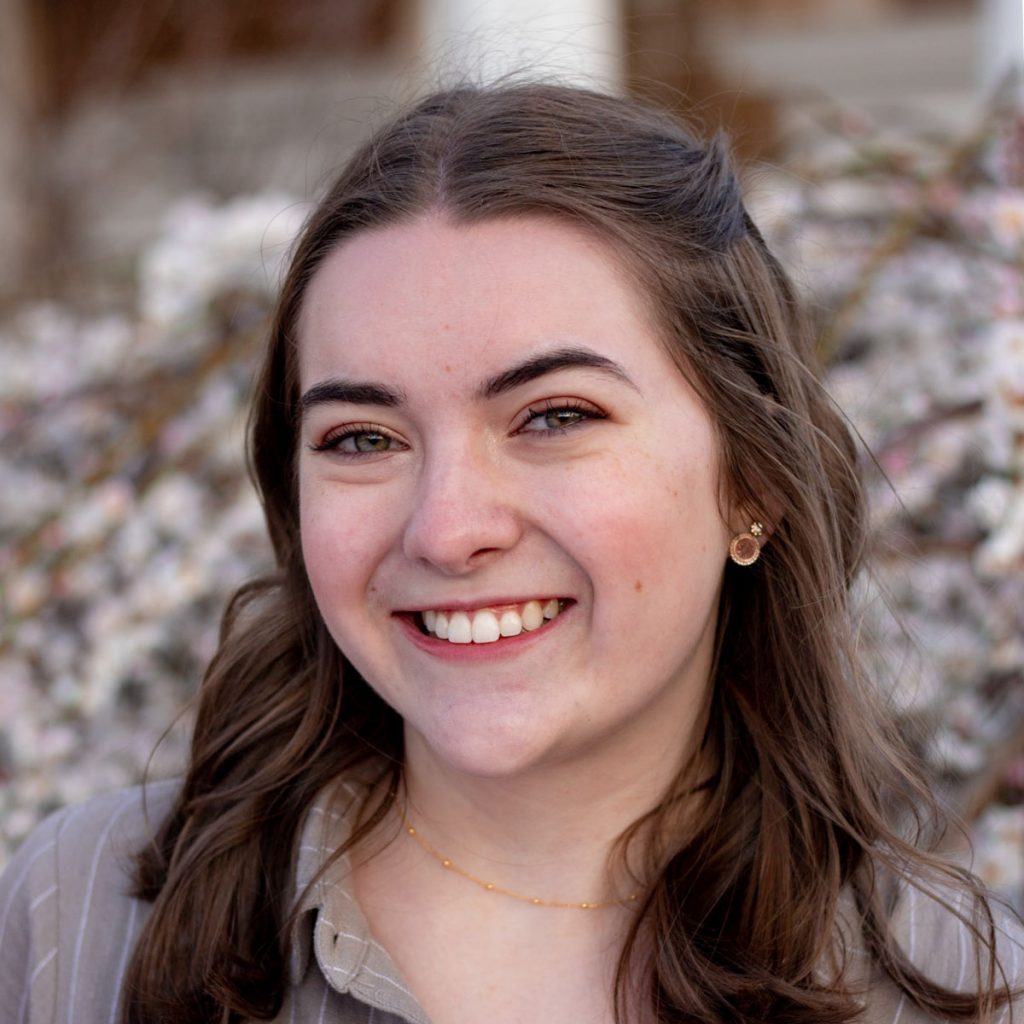Every day, people leave their homes due to persecution, violence, conflict, and climate-related factors. Their journeys to safety are often marked by loss, separation, and worry for those left behind.
For ten years, Ibrahim was separated from his family. This is their story of enduring hope. It’s a beautiful example of one refugee family reunited after a long time apart.
An Impossible Decision
Ibrahim was born and raised in the Darfur region of western Sudan. He worked a variety of jobs — housekeeping, construction, office administration — in order to provide for his family. There, he lived with his wife, three children, and a baby on the way.
While Ibrahim loved his home and community, conflict left him feeling uneasy. He was concerned for his family’s safety.
Darfur’s ethnic disputes and limited resources have fueled a decades-long conflict. In 2003, a rebel group launched an insurrection in Darfur. The group protested what they considered to be the Sudanese government’s disregard for non-Arab ethnic groups in the region. In response, the government armed ethnically Arab militias to combat rebels in Darfur.
Despite international attempts at peacebuilding and intervention, the conflict worsened. Militias threatened the lives and livelihoods of non-Arab civilians. They burned down thousands of villages, committed sexual violence, and blocked aid organizations from delivering much-needed food and medical supplies.
In 2013, a renewed wave of violence gripped the region. In the face of this conflict, Ibrahim made the heart-wrenching decision to flee Sudan. He left behind his wife and children, in hopes of finding help and a longer-term solution for them all.
“There was too much killing, too much fighting,” Ibrahim told World Relief. “It was impossible to live.”
Seeking Safety
Ibrahim arrived in Jordan hoping to find help. He registered with the U.N. High Commissioner for Refugees (UNHCR), meticulously completing his paperwork.
“I always wrote my kids’ names as my family on all the papers — all the dates of birth and everything,” Ibrahim said. His wife and children, still in Sudan, needed to be included in his case. His hope was that they would be resettled in a new country with him.
Ibrahim found work, sent money home to his family, and waited.
After two years, Ibrahim gained approval for resettlement in the U.S. He passed all required security and health screenings, but his family was still in Sudan. They were unable to travel with him and the family remained separated.
With help from the International Organization for Migration (IOM), Ibrahim flew to the U.S. in 2016, where the World Relief Triad office welcomed him to North Carolina.
Ibrahim remembers feeling like he had escaped death.
“When I arrived, I was so grateful for World Relief because they helped me with everything,” Ibrahim said. “They helped me with a place to stay. They were able to find work for me, and they helped until I felt that I could do things for myself.”
And yet, as Ibrahim rebuilt his life in the U.S., he never stopped thinking of his wife and children, still stuck in Sudan. They frequently spoke over the phone — and Ibrahim continued to hope.
“I couldn’t really rest or enjoy all the blessings I had because I kept on thinking about them all the time,” Ibrahim said. “I never felt complete.”
Hoping and Waiting
Now in the U.S., Ibrahim continued working with IOM in the hopes of bringing his family to North Carolina. He was persistent, calling for updates whenever he could.
With IOM’s help, he was eventually able to secure interviews for his wife at the U.S. embassy in Khartoum, the capital of Sudan. Still, the process crept forward slowly.
Then, in 2019, just when everything finally looked ready to move forward, Ibrahim encountered another obstacle — the president of the United States announced a new executive order banning Sudanese people from traveling to the U.S., Ibrahim’s family included.
The officials said “Everything is correct, all the papers are the way they’re supposed to be. There’s just some rules that they’re not allowing people.”
He began to doubt whether he would ever see his wife and children again. “I almost lost hope,” he said.
But then, in 2021, he got a call. A new U.S. presidential administration had reversed the executive order. Over the phone, he heard the long-hoped-for words: “Your family is coming.”
Ten years after Ibrahim had to leave his family behind in search of safety, after years of hoping and waiting, they would be reunited at last.
Reunited
In February 2022, Ibrahim gathered with staff and volunteers from World Relief Triad at the airport to welcome his wife and four children to North Carolina.
“I broke down in tears because I hadn’t seen them in 10 years, and now they’re here, and it’s real,” Ibrahim said.
“The little one that I left was only three months; when he came, he was 10 years old. I cannot describe how I felt — I was at the point of thinking maybe I will never see them again.”

Now, with his family finally together again, Ibrahim has new hopes.
“My hopes are for my kids,” Ibrahim states. “For them to get the right education, for them to be able to be good people. I want them to make something for themselves and make me proud… for them to benefit themselves and our new country — the United States.”
Remembering Those Left Behind
Even as Ibrahim and his family continue building their new life together in the U.S., he often remembers Darfur and the family, friends, and neighbors they had to leave behind.
“People are really suffering there. They don’t have food, they don’t have water, they live in very unsafe, unhealthy conditions,” he said.
The UN estimates 2.5 million people are living in displacement camps across Darfur, and 6.2 million people will need humanitarian assistance in the region within the next year. The same factors — war, violence and persecution — that drove Ibrahim and his family to find safety are still impacting people in Sudan today.
At World Relief, we recognize that addressing the drivers of mass displacement requires a multi-faceted and holistic response. In Sudan, World Relief is on the ground providing humanitarian assistance and investing in development and peacebuilding efforts to address the underlying factors contributing to conflict and displacement.
Together, We Can Respond
Building a just world means coming alongside families like Ibrahim’s once they’ve reached the U.S. and it means finding lasting solutions to the problems that force families to flee in the first place.
For Ibrahim, his hope for safety and brighter futures for those still in Darfur endures — “I really would like for them to… have a better life for themselves and for their kids.”
Together, we are taking action, hoping and praying for lasting solutions for displaced and separated families like Ibrahim’s both in the U.S. and in countries around the world.
World Relief Chicagoland relies on partners and volunteers like you to help build welcoming communities. Join us on the path to hope, transformation, and lasting change alongside refugees and immigrants like Ibrahim.

Kelly Hill serves as a Content Writer at World Relief. She previously served as Volunteer Services Manager at World Relief Triad in North Carolina before moving to Salt Lake City. With a background in International and Intercultural Communication, she is passionate about the power of story to connect people of diverse experiences.

Abby Ray has been serving as the Communications & Advocacy Coordinator at World Relief’s Triad office since September 2021. She works to amplify the voices of clients, staff and community members by empowering them to share their own stories.

